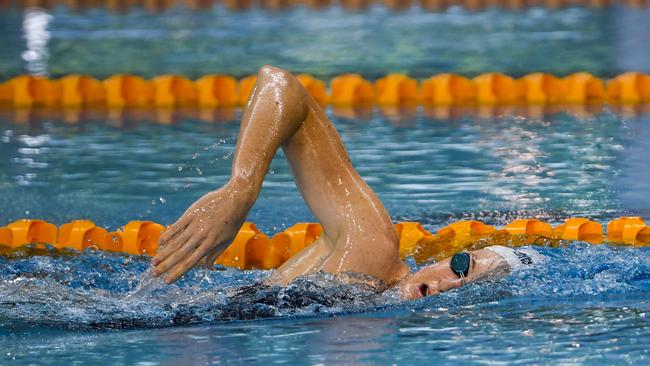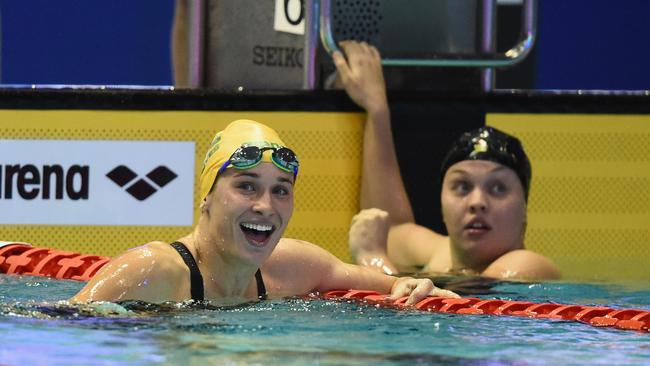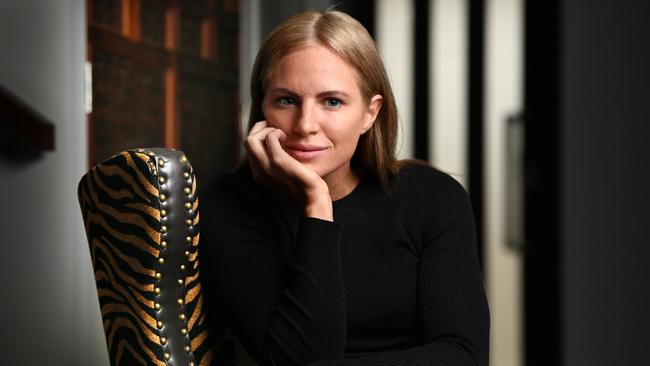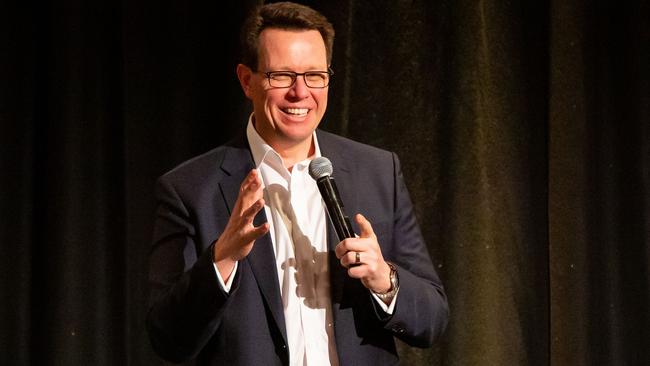Swimming Australia makes apology for historic abuse claims after six-month review
Aussie female swimmers have faced up to emotional and physical abuse that caused irreparable damage for generations while the perpetrators got away. Finally, their suffering has been acknowledged.
Swimming
Don't miss out on the headlines from Swimming. Followed categories will be added to My News.
As apologies go, this one was long overdue, but desperately needed.
It’s the worst-kept secret in Australian swimming that for generations, women and girls have been subjected to emotional and physical abuse that caused irreparable damage while the perpetrators got away scot free.
Finally, Swimming Australia – which has long been guilty of turning a blind eye to the shameful problems within the sport – has come clean and acknowledged what everyone else already knew: that the abuse of female participants in Australian swimming isn’t fake news or even old news.

“It‘s not historical. It’s what’s happening today,” Swimming Australia president Kieren Perkins told News Corp.
“It’s not acceptable and we have to start owning that culture and working on it.”
Anyone who paid attention to the cries for help from champion swimmers including Cate Campbell, Maddie Groves and Emily Seebohm wondered when this day was ever coming.
It should have been well before now but it came with an unreserved apology from Swimming Australia for the way female participants had been mistreated.
For the survivors, and the courageous whistleblowers who have been let down by the system, that was something they never thought they would hear.
But no-one is popping any champagne corks yet because the proof of whether things will really change will be decided by what happens next and the skeptics are unsure.
The independent investigators who looked into Swimming Australia’s treatment of women and girls were scathing in their assessment of the sport’s cultural problems and their report painted a sorry picture of sport with its head in the sand.
The three panellists – Chris Ronalds, Katherine Bates and professor Alex Parker – heard from more than 150 participants, including former and current athletes, parents, coaches, technical officials, volunteers and administrators.
In their final report, which they handed over to Swimming Australia late last year, they included 46 recommendations which left no doubt about the extent of the sport’s chauvinistic cultural problems.

Dr Michelle Gallen, who was appointed chair of the steering committee that will look into the recommendations, said the intention was to implement them all, hopefully before the 2024 Paris Olympics.
“We will address every single one of them,” she told News Corp.
“Some of them are very detailed so we will work through them over time.
“I don‘t have a time frame yet because the committee only met very briefly for the first time yesterday, but once we have a timeline for how we’ll address them, we will also publish that and we are committed to implementing all of them.”
There is, however, at least one recommendation that won’t be rubber-stamped.
The independent panel’s final suggestion was that its report be published in full, but Perkins said that won’t happen.

“The board has had that discussion. It was very robust. It lasted almost four hours and the reality is that one of the core tenets of the formation of the independent panel was to ensure the confidentiality of those who did put forward their stories,” he said.
“The reality for us is that in a sport that is a big sport, but it‘s also a small sport, too much of the detail in the report would be easily identifiable, connected to individuals that we know and we don’t think that there is any positive benefit to be gained by putting those people at risk of attention for what ultimately was always promised as an opportunity for them to confidentially put forward their view to an independent panel so that change could occur.”
Perkins confirmed there were no reports of any sexual abuse in the review, which focused on the last five years, but he was still shocked by some of the findings involving issues he thought had long disappeared from the pool deck.
“For me, what was challenging to read in it was there‘s elements of it that’s like reading and reliving your own childhood,” Perkins said.
“There was a number of things in there which I identified with personally and were not at all surprising.
“But if I‘m honest, the big surprise for me, or the challenge for me, is that there’s a lot of behaviours that did happen historically.

“As you grow up yourself and as you move into different areas of life, you think that these things were left behind and that the sport has matured and grown and is moving with the 21st century into a more enlightened way of understanding how you deal with and support young people to have a positive experience in sport.
“And unfortunately, there‘s just too many examples of where that culture hasn’t evolved and it hasn’t modernised.”





